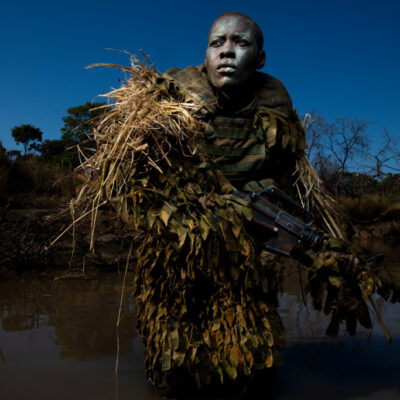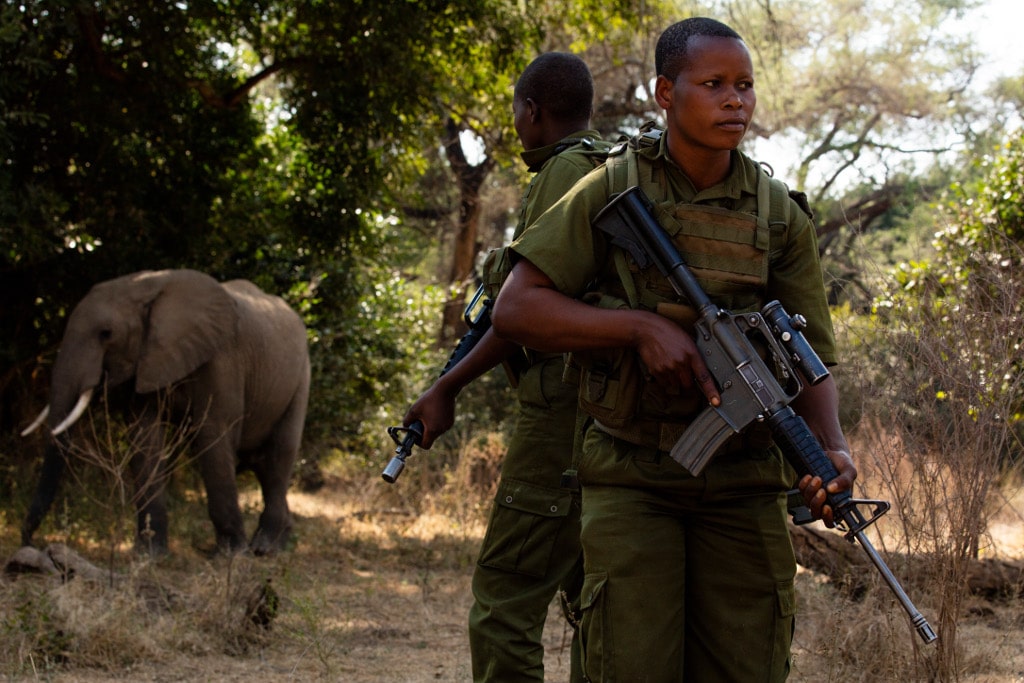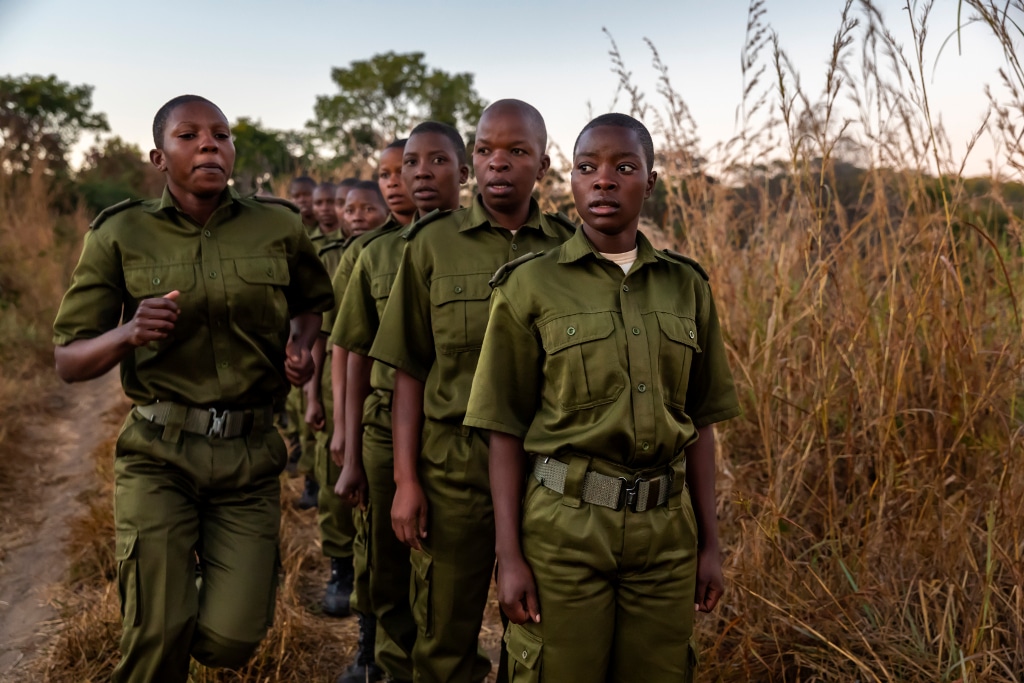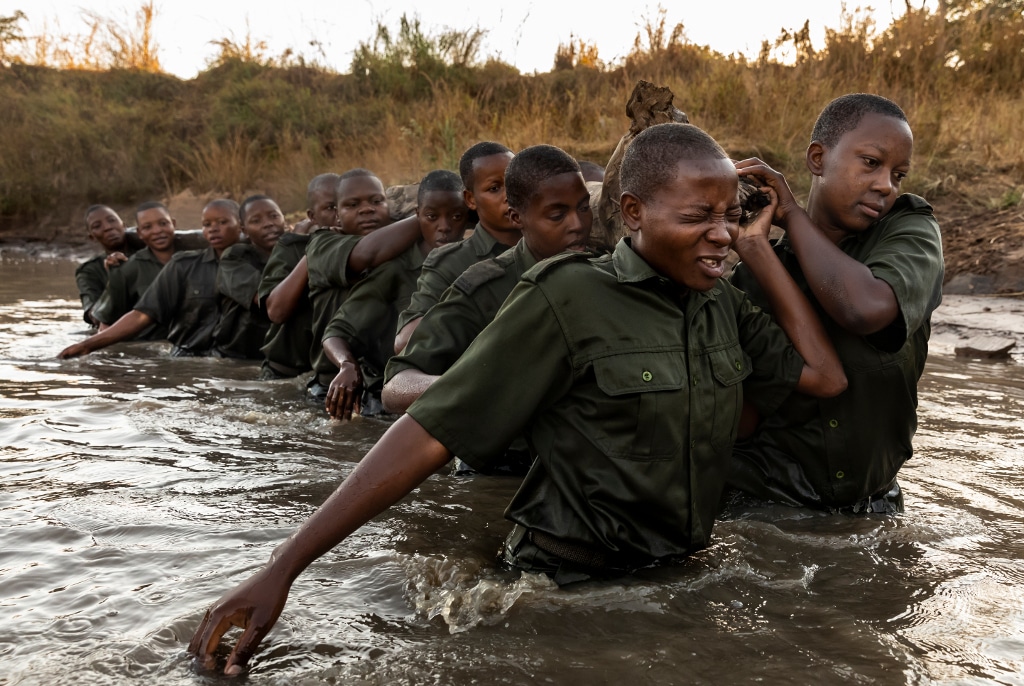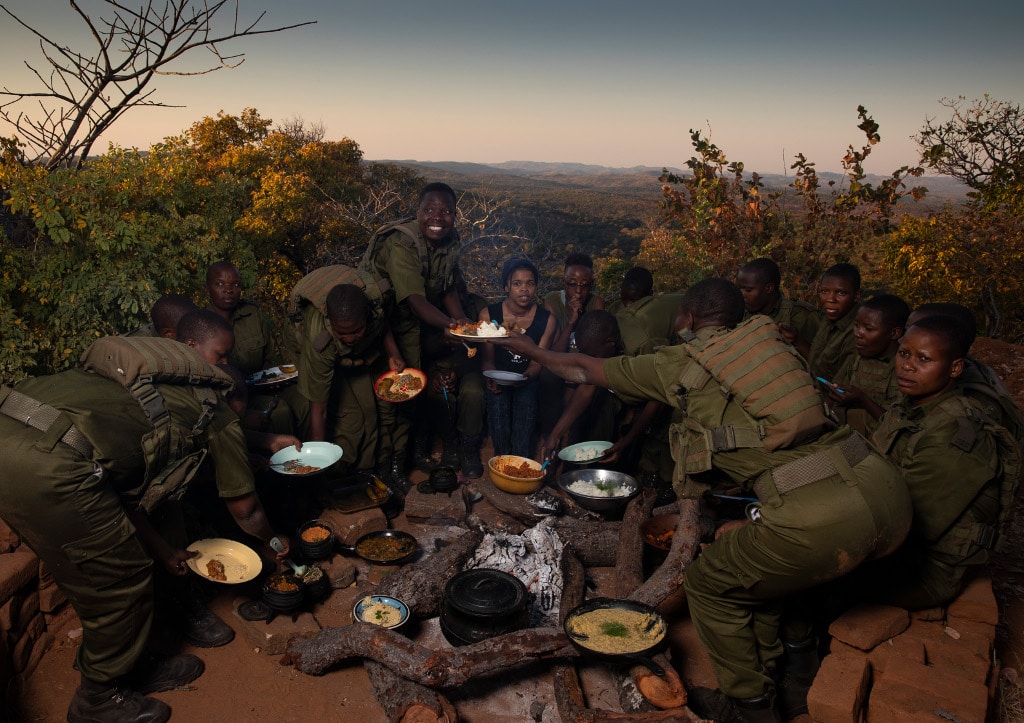The first time I heard about the Akashinga Rangers, I was watching a promotion for a documentary about the unit and the incredible Black women who make up this mighty group. They protect endangered wildlife in Zimbabwe’s 115 square mile Phundundu Area, which is one of eight reserves under protection by the International Anti-Poaching Foundation. The organization is undergoing a major expansion across the region and hope to have 1,000 Akashinga rangers deployed by 2026! These ladies and have become the new face in the fight against poaching. The members are local marginalized women who risk their lives to keep Africa’s most vulnerable species from extinction while also changing their own lives and their communities for the better.
The women of the Akashinga unit are single mothers, abandoned wives, widows, sexual and physical abuse survivors, and girls orphaned by HIV/AIDS. Because of the hardships they faced in life, they are not intimidated by the hellish conditions they may face as rangers. Add to that the fact that these women receive Special Forces training and are prepared to deal with heavily armed poachers, who often put up a fight.
Each year about 35,000 elephants are killed in Africa. A rate which could lead to their extinction in our lifetime. The Akashinga rangers mostly fight to protect elephants, as well as rhinos and lions. Since 2017, these ladies have made hundreds of arrests and helped drive an 80 percent down turn in elephant poaching in their homeland.
Many of the women never dreamed a woman could be a ranger, let alone that they themselves could achieve it. Now they have gone from being victims to leaders in their communities. One woman, who escaped an abusive marriage is now a sergeant and part time student at a university pursuing a degree in science, wildlife, ecology and conservation. And she managed to buy her own plot of land.
You might imagine, these women are in top physical condition… not just because of their training, but also what they eat. The woman come from villages where eating meat is common. But they are encouraged by founder Damien Mander to eat Vegan while on the job. They can eat what they want when off the job, but the ladies eventually give up meat and dairy.
Mander told Forbes.com that “The greatest negative environmental impact on this planet that we have is the meat industry. So being a conservationist, it didn’t make sense to me to be going out all day, trying to protect one group of animals and coming home and putting another group of animals on the fire and supporting an industry that is responsible for massive deforestation and the death of over 100 billion animals a year.”
Mander partnered with Chef Nicola Kagoro, aka Chef Cola of African Vegan on a Budget, to set up a program designed to help the rangers with eating Vegan. In an interview for byanygreensnecessary.com, Chef Cola explains that their Back To Black Roots Kitchen And Garden program provides a team of chefs that work around the clock to provide Vegan meals for the working rangers. In addition, the chefs teach the rangers how to use local resources to cook Vegan food and how to grow their own food. Of course they pass this knowledge on to their families. The program also works to educate and train other locals. Chef Cola goes on to share that some of the chefs working on the team are men who are former poachers.
I love everything about the Akashinga Rangers and the associated programs. I hope they can provide a blue print for others wanting to protect animals, empower women and boost a struggling community. If you want to see the Akashinga Rangers in action, check out this documentary from Oscar winning director, (and fellow Vegan), James Cameron. And you can support their work to save animals and uplift their communities here.
